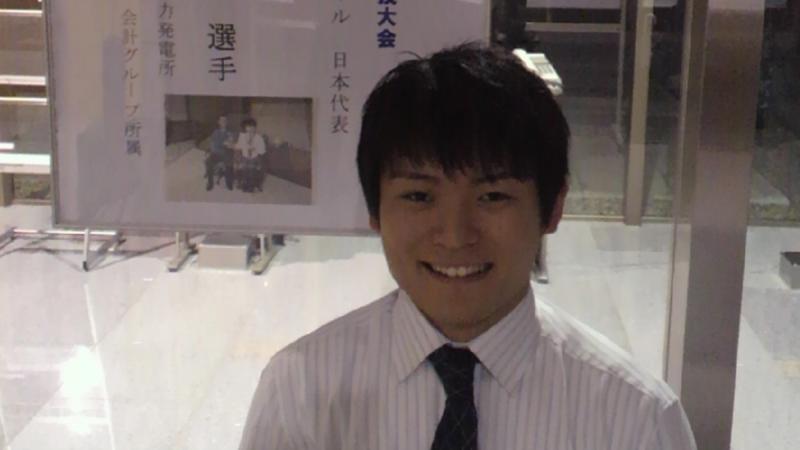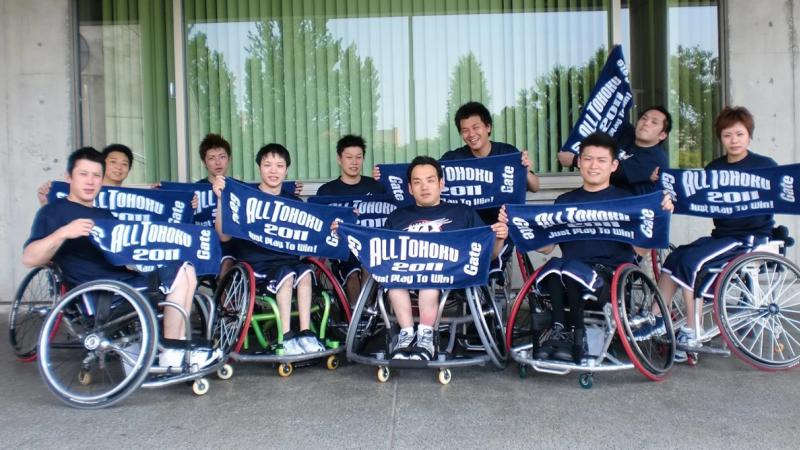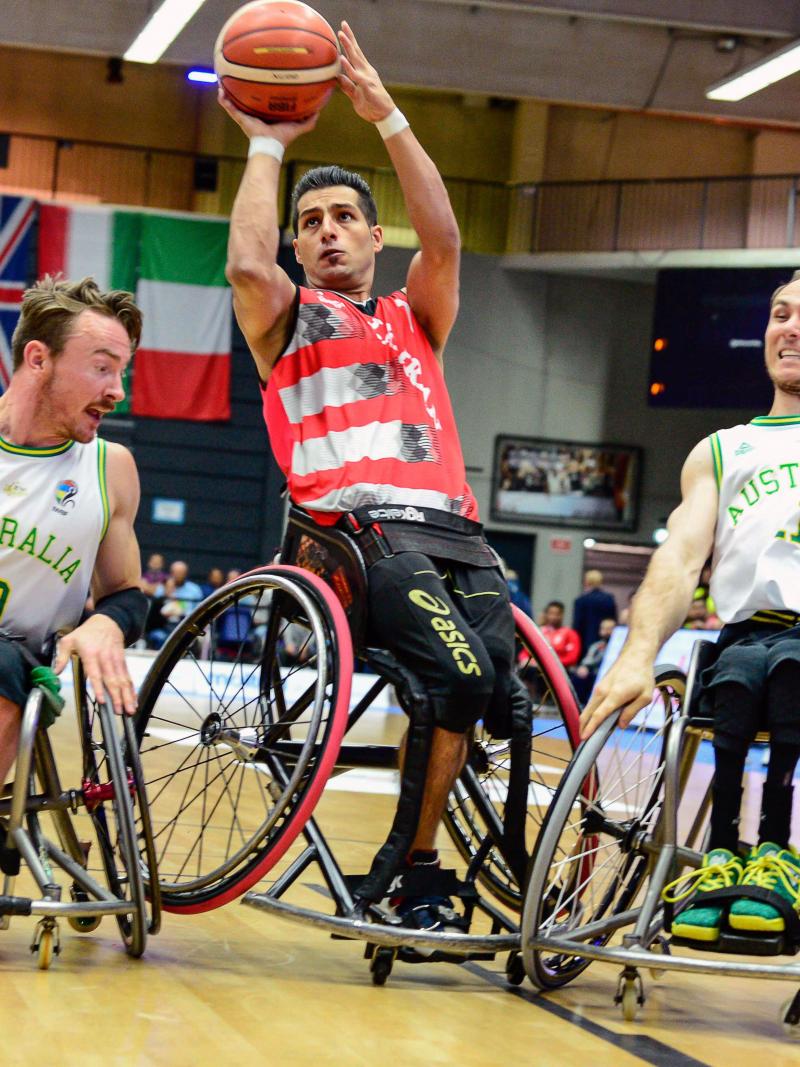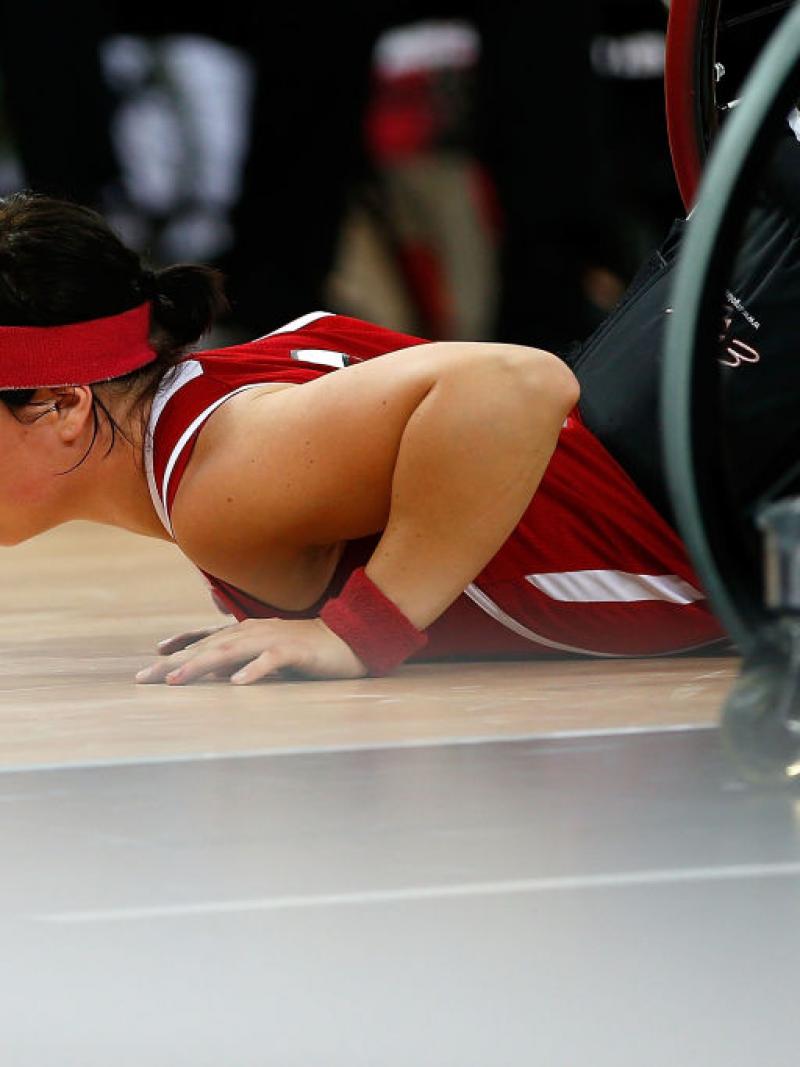Akira Toyoshima: I want to deliver hope and courage through our performances
11 Mar 2021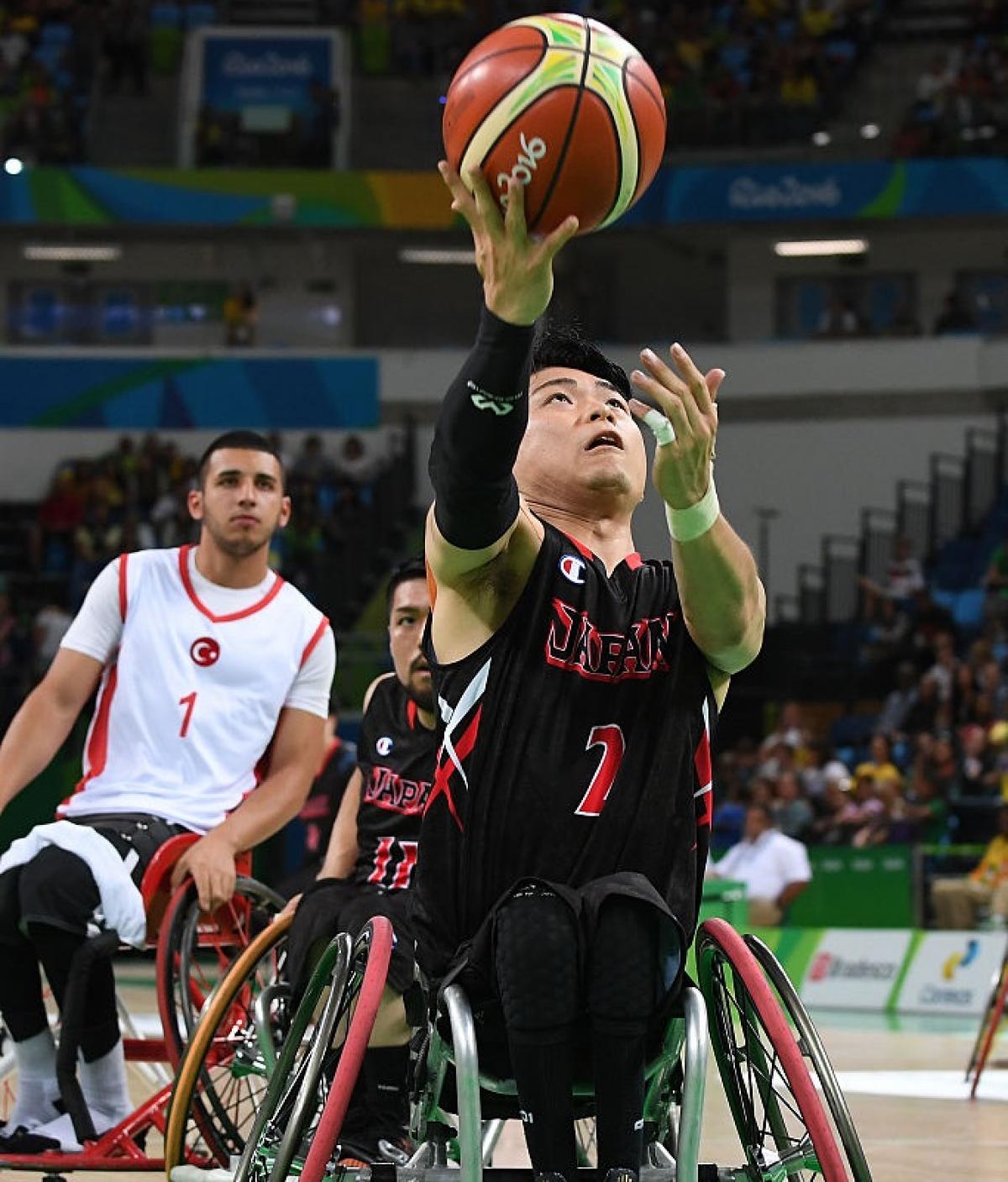
"I want good results because it has been dubbed the 'Recovery Games'. I want to bring a medal back to Fukushima" — Wheelchair basketball player Akira Toyoshima spoke passionately on the 10-year anniversary of the Great East Japan Earthquake.
On that dark day he was in his former workplace, the Fukushima Daiichi Nuclear Power Plant. Now he is the captain of the Japanese team, competing in his third Paralympics. It is a decade since the tragedy which makes the slogan of 'Recovery' much more meaningful. Now Toyoshima aims to stand on the podium in this unique Paralympic Games in order to give hope to the people of Tohoku and his hometown Fukushima.
Nuclear disaster, criticisms, rumours and London 2012 Games
Utter confusion filled Toyoshima's mind after the vicious tremor settled down. What was going on? 11 March 2011, 2:46 pm. Toyoshima was organising documents in the main office building of the Fukushima Plant as a member of the accounting team. After the long tremor, he left the building and entered the nearby seismic evacuation building. Without any professional knowledge, anxiousness about his fate and the fear of radioactivity took hold. Toyoshima was in the middle of a crisis that the whole world was focusing on.
"I was planning to return home the next day by shuttle bus, but I couldn't leave the building because of the explosion. I had no idea what was going on. The situation in the reactor building, how dangerous it was, when we could get out… I was in the premises but was as puzzled as everyone else outside."
When Toyoshima was finally able to leave the premises, he could not return to his home in Futaba, since the whole town had been evacuated due to the disaster. He headed to his family home in Iwaki city. It had been three days since the earthquake. The London 2012 Paralympic Games had been Toyoshima's goal since his middle school years. The moment he had dreamt about was just a year away, until the disaster destroyed all those plans. Groundless rumours seriously harmed the areas stricken by the earthquake. As a victim of the disaster himself, Toyoshima questioned himself.
"Basketball remained in my heart, but I was hesitant to play. So many people lost their lives, so many people had to live in evacuation shelters... Of course, I wanted to play in the Paralympics, but still, I doubted whether that was possible given my circumstances and the social situation."
Unable to practise, Toyoshima was left in the dark, until he saw defender Aya Sameshima play in the FIFA Women's World Cup that took place between June and July of that year. Sameshima, who was a colleague at the Fukushima Nuclear Plant, led the Japanese team to the title.
"Seeing my colleague play showed me a different way to live as an athlete: To play hard and give back what you received from your community, your hometown. It was a great revelation for me. It was 'Hope'. In that moment of realisation, I left my doubts behind."
A reluctant team captain for Tokyo 2020
Before the earthquake, Toyoshima used to drive for two and a half hours from Fukushima to Sendai to meet up with his wheelchair basketball team. In April 2011, he was transferred to Mito city, further away from Sendai. With the disaster and subsequent relocation, it became challenging for Toyoshima to continue commuting to Sendai to play with his team. In order to focus on his game, Toyoshima decided to leave his job. After a brief return to his family home, he moved to Sendai, where his team were based, so that he could focus completely on wheelchair basketball.
The Japanese team placed ninth at the London 2012 Paralympics, and in 2013, it was decided that the 2020 Games would be held in Tokyo. However, Toyoshima, who would turn 31 in 2020, wasn't too interested in playing. For Toyoshima, the prospect of competing at Tokyo 2020 Games was somewhat unrealistic.
"I didn't really have doubts about myself playing the sport, but it's not easy to continue being selected for the national team. I couldn't imagine myself being able to play in the Tokyo 2020 Paralympic Games, so I didn't particularly make it a goal."
Contrary to what he believed, the national team needed Toyoshima. After finishing ninth again at the Rio 2016 Paralympic Games, Toyoshima was appointed captain of the 2020 squad. He was the captain of a team on an 11-year winning streak in the National Championships and also the national team's primary playmaker, with a reputation for incredible speed and agility. But despite such credentials, he was surprised by the appointment.
"To be honest, when I first heard about the appointment, I doubted I could really do it. But, if the team needed me, I wanted to do it for the team. When we finished ninth at the Rio Games, I just thought we needed to do more to get better results in Tokyo."
Led by Toyoshima, the national team significantly improved. At the 2018 World Championships, they finished ninth again but beat the European Champions, Turkey. Victories in international competitions followed. The best result the team has achieved so far is seventh at the Beijing 2008 Paralympic Games, but they have begun to see opportunities to aim even higher and reach for the podium.
"The team isn't improving because I am the captain. Rather, the team now has a strong and consistent playstyle, supported by the improvements made by each player. I always say to my teammates that 'I am not the leader, but each one of you are.' If everyone enjoys playing the game and brings their strengths to the team, that chemistry improves our overall play and game."
The 10-year memorial: A medal in the 'Recovery Paralympics'
As Tokyo 2020 drew closer, Toyoshima became aware of the Games' position as the 'Recovery Olympics/Paralympics'. The fact that 10 years has passed since the disaster has only intensified his feelings. In the first Paralympics to be held in Tokyo in 57 years, Toyoshima will participate as the team captain of wheelchair basketball, one of the most popular sports in the Games.
"I just thought of the Paralympics as a competition where top athletes compete. But on top of that, Tokyo 2020 is the 'Recovery Games', and for that reason, I want a good result. I want to bring good news to my hometown. Of course, I am aiming for a medal. As a team, we are aiming for a medal. If we can play our game, I don't think it will be just a dream."
Toyoshima believes the Tokyo 2020 Games has changed the environment for wheelchair basketball and Para sports, in general. An increasing number of people are interested in the sport, and matches are beginning to attract more fans who bring passion to the sport. Although the spread of COVID-19 has limited the number of spectators allowed to enter venues, Toyoshima hopes that even more will start loving wheelchair basketball as a sport.
"It's the intensity; it's the speed. You can watch it the same way you watch normal basketball, as the rules don't differ too much. I want people to see it as a real, serious sport, not as something people with impairments do. I believe that's what's fascinating about wheelchair basketball. I would be more than happy if I could show the charm and excitement of the sport to the people of Japan and people all over the World. I also want to show them how far we have come in terms of recovering from the disaster."
Following that unforgettable disaster at Fukushima, Toyoshima will stand on the Paralympic basketball court, with all eyes on him and his team. Because the road to get there was so difficult, Toyoshima is hoping for results in Tokyo. His strongest motivation is being able to show a medal to the people who supported him along the way.
"People who know me from the disaster would know how difficult it was to continue playing after 2011, even more so to be able to play at the Tokyo 2020 Games. I want more people to know my past and my journey to the Paralympics and to give them hope. I want to be that kind of person. It would be my pleasure and my greatest wish for my play to inspire people to have courage and hope for the future. That is why I want good results; I want to deliver that medal to my people".
Like the 'Nadeshiko Japan' squad that motivated him to play again; Toyoshima plans to bring happiness and a message of hope to the disaster-stricken areas of Japan and his home, Fukushima.





